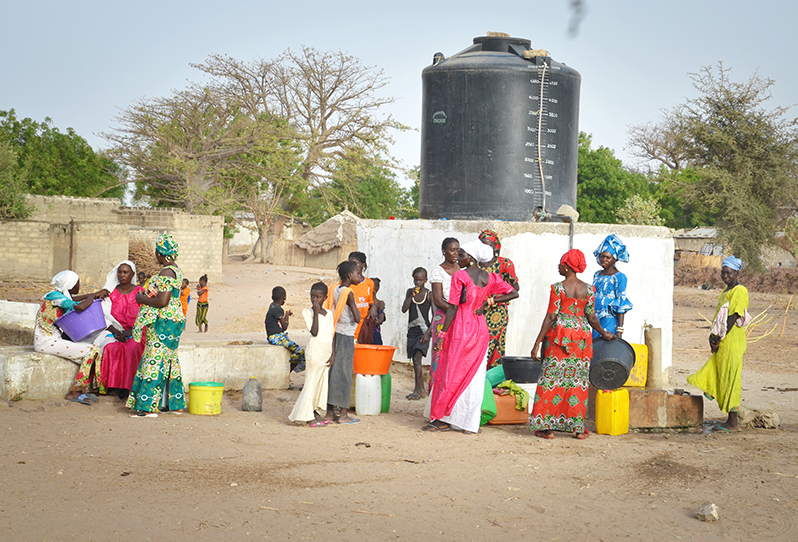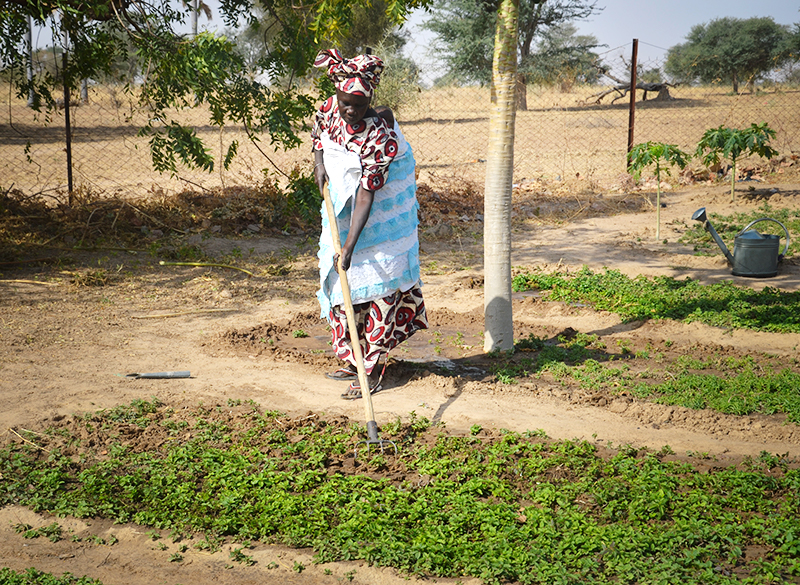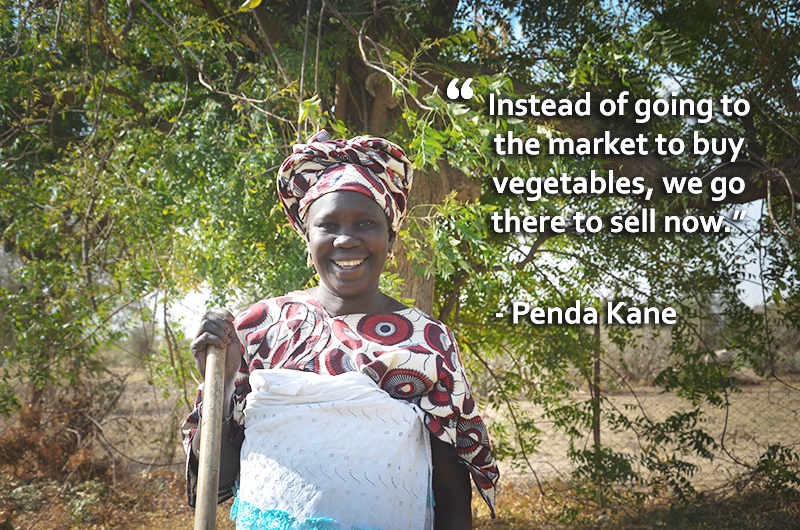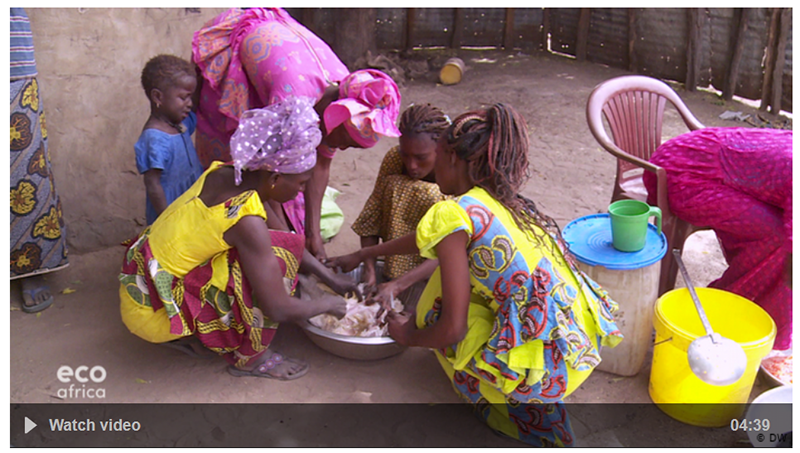As a widow and a mother of six living in rural Senegal, Penda Kane has multiple responsibilities weighing on her shoulders. “Before CREATE!, I was only working in the rainy season,” Penda tells us. The rainy season runs for 2-3 months in Senegal and is the prime season for rural farmers. Unfortunately, this leaves a large gap in the year when rural communities are met with the challenge of finding other ways (and other places) to make a living. However, things changed for her family when Penda and her community of Diender decided to engage in sustainability projects.
“Many things have changed in the village,” Penda tells us. “Women no longer need to leave their family to look for work outside [the village].” People can now work and make a living directly in their community, which means Penda can stay with her children. Activities include sustainably growing and selling produce as well as developing Voluntary Savings and Lending Associations (VSLA) for income accountability. “We worked with many CREATE! technicians and gained a lot of experience through them,” Penda explains. “Now we are able to work every day without any help.”
Solar Power Leads to Clean Drinking Water
Every day when the sun begins to set, Penda returns home from her work in the cooperative garden with fresh vegetables for her children. Before arriving at her hut, she will stop at the village reservoir to fill up her containers with clean drinking water. “I always get 20 liters [of water] per day,” Penda says. CREATE!’s technicians installed a solar-powered water pumping system in the community’s rehabilitated well. Now Diende has year-round access to clean water for the first time! “Since I drink the well water I feel healthier,” Penda describes. “The drilling water is salty and very heavy for the body. I used to suffer from knee pain and hypertension.”

Drinking water is stored in a 5,000 liter water reservoir where community members take 20-40 liters from the tap each day for household use.
Sustainable Community Gardening
Consistent and reliable access to clean water not only leads to health improvements but also to new agricultural opportunities! Penda and her community work together to sustainably produce vegetables all year-round in a cooperative community garden site. “Since we started growing vegetables in the village, my family’s diet has improved,” Penda says. Before Diender had a cooperative garden, Penda would have to travel 5km about once a week to an expensive market in Gossas for vegetables. She would often travel by donkey-cart or the back of a motorcycle. The cost in both and time money to travel to the market meant that Penda’s family couldn’t eat vegetables regularly. “Now we have easy access to vegetables,” she explains. “Instead of going to the market to buy vegetables, we go there to sell now.”

Today, Penda spends her time weeding the nana (mint) beds in the cooperative community garden.
Supporting Each Other
Penda and the other community members sell the excess produce in the market to generate income. With the knowledge from CREATE!’s technicians, the women formed and run a Voluntary Savings and Lending Association (VSLA). This is a group where community members can save income, earn credit, and take out loans for personal and household uses. Penda explains that she likes the VSLA because it gives her a chance to save her money in the village. “The VSLA has changed many things in the village because we save money and can solve many problems with that savings.”
Stories like Penda’s really go to show how deeply people’s lives can be affected through training and empowerment at the village level. This is the kind of success we want for women across all of our partner communities in rural Senegal. Consider helping more women like Penda by donating to CREATE! today.
Want to see our programs in action? Watch a 5-minute video by Eco Africa about one of our partner communities in rural Senegal: https://www.dw.com/en/empowering-women-in-rural-senegal/av-48013146


